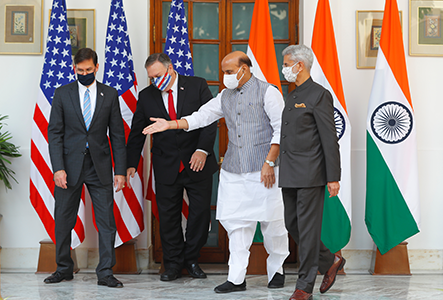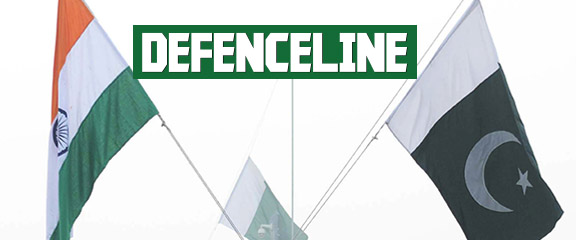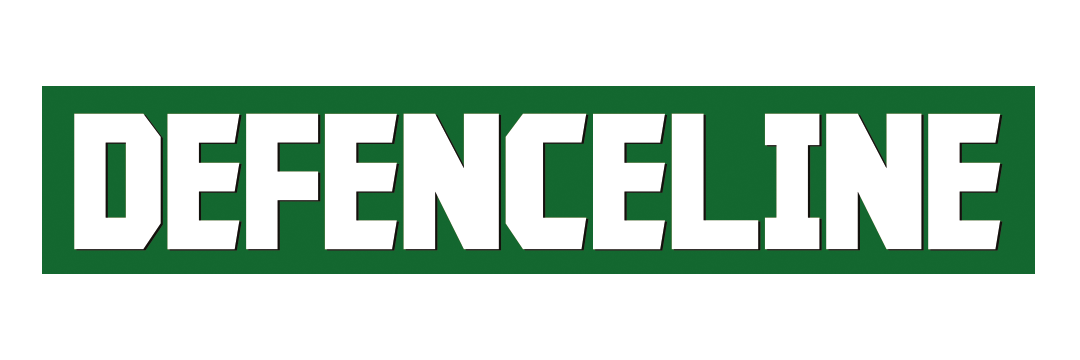As we come to grips with COVID-19, conspiracy theorists seem to be sure that it is all a big game aimed at achieving a One World Government which has eluded power gamers so far. Who knows? It might well be true, but one thing is for sure: the Great Game never ends, that competition and conflict is natural and that peace is merely an interlude, more a Utopian thought really, than anything else. There’s another, more mundane reality which doesn’t find many takers; there’s bound to be a fall after every rise, it can be delayed but rarely averted.
The 20th Century saw the rise of an American-led Free World, championing the cause of democracy and opposed by an equally determined Soviet-led Communist World. Neither of them could imagine the breakup of the Soviet Union and the end of Communism. Yet it happened, leaving the world at the mercy of a sole superpower, which never hesitated in unleashing its might on those who refused to fall in line with its demands. And so, in this new world, more people died and more countries suffered as compared to the mayhem caused by almost all the wars combined — all in the name of democracy and the protection of human rights.
Is it time for yet another upheaval of the same or of even greater magnitude? The rise of another great power and perhaps even World War Three? This thought is finding increasing mention as we enter the third decade of the new millennium, or shall we say, as the high and mighty of this world come to grips with changing realities around the globe. While the USA was busy stringing a ring of pearls in the Far East, picking up ever-ready India along the way, squeezing it into Afghanistan with the dual purpose of dominating the Indian Ocean on one hand, and blocking the possibility of a Eurasian land mass linking up with this great body of water on the other, the Great Dragon wasn’t just a bystander. But the end of the Soviet Empire didn’t mean that its inheritor, Russia, would just roll over. Meanwhile, the effects of the so-called Arab Spring are just beginning to show, as the US, with the willing cooperation of the Arabs, helps Israel increase its security perimeter right up to the Persian Gulf and the Indian Ocean. The stage isn’t set as yet, although strategy papers coming out of Washington would have us believe so, essentially telling us that the ‘war on terror’ has been won and that it’s time to prepare for war against rising China and possibly China and Russia combined.
Looking at the chess board one is left in no doubt that the CPEC is central to OBOR and that progressively deepening economic ties with Russia are the rider
The breakup of the Soviet Union found India in a strategic wilderness, but not for long. It started prepping during the latter part of the last century, and finally went to bed with the sole superpower in 2016, with the signing of the Logistics Exchange Memorandum of Agreement (LEMOA) and Basic Exchange and Cooperation Agreement (BECA) just before the recent US elections. Is it just a coincidence that India’s strategic alliance with the Soviet Union in the ’70s was just when communism was on the decline, and now with the US comes at a time when this superpower also seems to be on the wane? Just a wild thought, but consider…
Meanwhile China wasn’t sleeping. Having bridged its differences with Russia, moving strongly in Africa, putting its boots on the ground in Eritrea and coming up with the One Belt One Road (OBOR) initiative, ostensibly aimed at building economic connectivity, but essentially a huge strategic push to expand its options within and beyond Asia. This great and ambitious project has so far manifested itself by way of their presence in Myanmar and Bangladesh, by building a port in Sri Lanka, a port city in Oman, the China-Pakistan Economic Corridor (CPEC) in Pakistan, mega trade deals with Iran, and big investments in Afghanistan. Looking at the chess board one is left in no doubt that the CPEC is central to OBOR and that progressively deepening economic ties with Russia are the rider.

Now we come to the more interesting part of the Great Game which never stops. If a strong enough presence in Afghanistan and India is crucial to the American scheme of things, Pakistan is pivotal to OBOR. This is where India’s calculation started going awry. It failed to read China. It also failed to fathom the depth of Russo-Chinese bondage. Spurred on by improving ties with the West, it finally committed itself to a unidirectional strategy by declaring its absorption of Illegally Occupied Jammu and Kashmir (IOJK) and passing various legislations to marginalise its already under-pressure minorities. This was a direct threat to the CPEC and in turn to OBOR. The Dragon was probably looking for this opportunity and bared its teeth during the second quarter of 2020 by heating up India’s entire eastern front with a focus on Ladakh. American or the combined naval power of the Quadrilateral Security Dialogue (QUAD) is hamstrung against these moves on land, leaving India to fend for itself, unless its sponsors decide to employ their naval and/or air power to force China back. The joke is again on the US because China not only has a strong air force, but a huge flotilla of boats of various sizes to almost choke the combined strength of the QUAD navies. Admittedly, China may not win against them, but even a stalemate would do while other instruments of military power come into play.
Given this context, India is now stuck. Having failed to browbeat Pakistan through proxies and direct military actions, COVID-19 taking a heavy toll, its economy tanking, minorities up in arms and eight million unarmed, brave Kashmiris locking down around a million-strong armed force for over a year, India is left with only one way to go: stay the course and risk defeat, or back down and go bust. While the former is most likely, with a possibility of success however remote that may be, the latter appears to be its destiny. India is an unnatural state anyway, and like it’s main sponsor, is on the decline in almost all spheres of human and state activity. The swastika, an expression of Hindu mythology, adopted by the RSS, the forerunner of Modi’s BJP and embraced by Hitler as a symbol of his fascist thoughts, and the BJP ideology should provide the necessary proof of India today, if one is left in any doubt. That Modi-led India has adopted fascism as its state policy is not a mere coincidence.

This is where the game becomes very dangerous for Pakistan because it emerges as pivotal to both sides. Knock out Pakistan, OBOR goes with that and the American-led powers have it all to themselves. How to do that? Direct military action or efforts to force an implosion from within? Or both? Evidence suggests causing an implosion seems preferable as of now. Our weak economy, political uncertainty and less than appreciable governance provide enough grounds for it. Is it any wonder that all of it is happening at a time when the environmental matrix around us is achieving synergy directed against our very existence? Perhaps it’s just my pessimism and this interpretation of events is just that — the figment of an overactive imagination. Perhaps in fact, the world is moving towards a more amicable settlement of power sharing.
This optimism is more pronounced in Pakistan due to the forthcoming change in the US Administration. Why so? We seem to think that like Pakistan, others also change when personalities are replaced at the helms of affairs. It might be happening in some third world countries but not where nations have the power to dictate terms. They rarely change their objectives or consequent strategies, only nuances. The US is one such country. China is getting there while Russia isn’t far behind. Interestingly, India also considers itself part of the same club, one reason why it finds itself in a bind right now. It forgets that there is only so much space and no more. One way or the other, it has to pay the price now. That comes with the territory.
Not that the foregoing conclusion is great news for us. It’s good to know that Pakistan is pivotal in the unfolding power contest, but are we up to it? Have we been able to put together a strong enough national narrative which can help us battle out the 5th Generation War that we are in right now? Do we have even a few bare minimum denominators which won’t become political football between the feuding political elite? Do we realise that things are coming to a head around us and that bringing them to a head within is actually the major assist our enemies need? Like it or not, this is the crux of the matter.
Turkey has been and will be with Pakistan through thick and thin. Russia, in its own laid back way, is edging closer to us.
External pressures are likely to increase in the foreseeable future. America isn’t leaving Afghanistan any time soon, never mind all the rhetoric about peace. What will its course of action be? India can’t do much against China, its space within Afghanistan is shrinking rapidly and it isn’t doing too well on the home front either. What will Modi’s India do under the circumstances? Israel has physically reached the shores of the Indian Ocean and Persian Gulf, all in one small scoop, far too close for our comfort.
However, all is not lost for Pakistan. Iran seems to understand the situation and is coming down from its high horse. Turkey has been and will be with Pakistan through thick and thin. Russia, in its own laid back way, is edging closer to us. Going by the social media, it would seem that our Arab friends are moving closer to our arch enemy, but hard ground realities are against any such move. They will have to be with Pakistan if push comes to shove.
But none of this will be of any use if we fail to get our act together, politically, economically and in the field of governance. Otherwise the ongoing 5th Generation War will push us closer to instability. All elements of national power have to be geared up for this purpose, including the media, especially the media. Remember, the armed forces are just one element of national power, and not the main one either.




